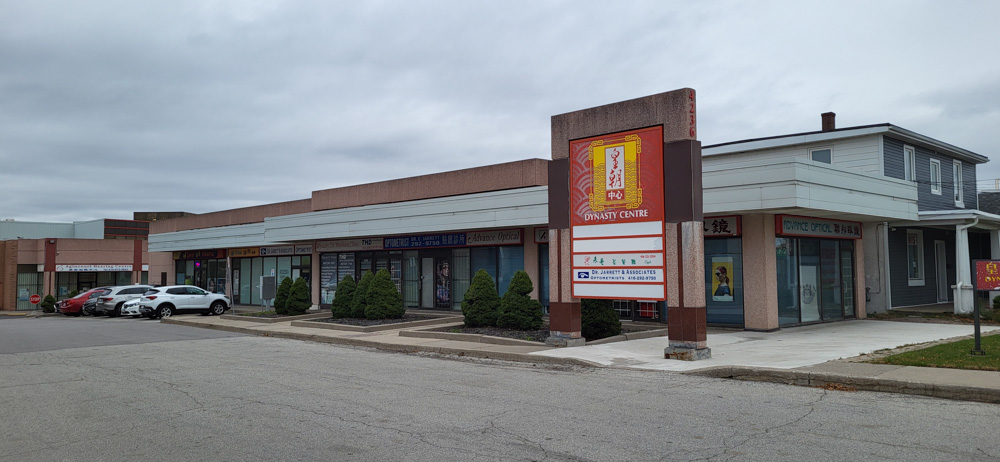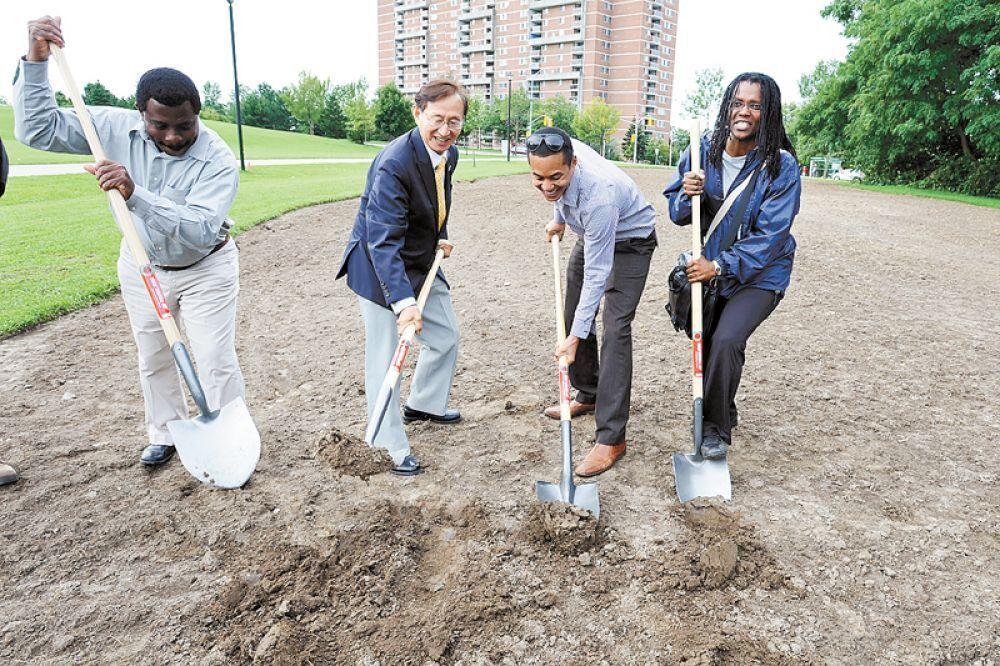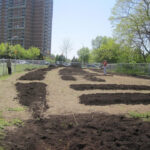Community, Culture & Charity
So, when I first took over [the business], this was more like a family run business…the whole family was always there. So for example, like the brother, [works in] the kitchen, the sister [works] the counter, right? But afterwards, I used a different approach. I tried to do it so I can have employees working [as well]. I’m always here, [and it’s still] like a family business.
– Harvey Lin from Marathon Café
Agincourt is more than just shopping malls and supermarkets, it is part of many areas in Scarborough that use community as a network of support and connection. With a history of tough times, non-European immigrants and entrepreneurs, including Chinese, Southeast Asians, Caribbean and many other communities, always consider how they can support each other. Since food brings communities together, food has been the way these communities stay connected to each other.
Our food truck and street vendors [support] my charity events. We help raise funds by making milk tea for people to taste.
– Harvey Lin from Marathon Café
For example, the Malvern neighbourhood in Scarborough is where more than sixty different cultures live together. These folks work hard but face a lot of tough situations. Many of them come from places like the Caribbean, South Asia, and Eastern Europe. They don’t always have secure jobs or homes.
Not having access to or money for fresh food inspired many of Malvern’s residents to come together to make things better through the Malvern Food Security Workgroup (MFSW). This group plans events like festivals and workshops, and they even organize activities in the community garden. This garden is in the park on Neilson Road, just south of Finch Avenue. It took more than two years to get it started, with support from Lowe’s on Markham Road, and it officially opened in 2011.
Especially during the COVID-19 pandemic, the garden became even more important. Many folks were worried about using public transportation or going to stores for food, risking illness. So, they relied on the garden for fresh food. The support from the government and the leadership from diverse community members were an example of how a community can grow during hardship.
The garden isn’t just about growing vegetables and fruits—it’s about bringing the neighbourhood together and encouraging them to gather in Neilson Park for other activities. People can join as volunteers or become part of the garden committee. Around thirty-five members and lots of volunteers take care of the two city-run gardens, Neilson Park and Littles Road. These gardens are important because they provide fresh food for programs like Malvern Eats and a local mosque’s soup kitchen.





